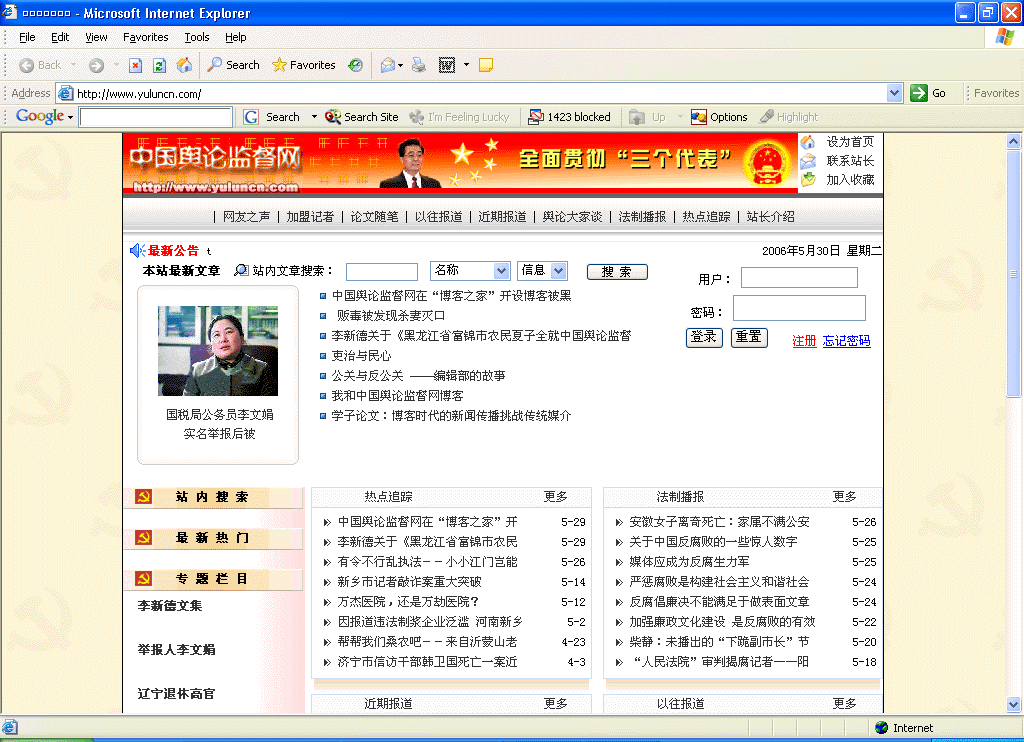According to a recent New York Times article, “Death by a Thousand Blogs“, there are now some four million blogs in China, representing about 4% of some 100 million Chinese Internet users.
This is remarkable, given the high degree of Web censoring that occurs in China today. Although China claims that its web regulation is no more restrictive than that of the US or Great Britain, the reality is much different. According to BBC News, the websites of news providers such as the New York Times or BBC, as well as human rights organizations, such as Amnesty International and Human Rights Watch, are inaccessible from computers in China. Major Internet service providers (ISPs) throughout China required by law to monitor their websites and to control and erase “dangerous” or “subversive” content. However, judging from the blocking of a variety of websites that have nothing to do with “dangerous” content, it is clear that a much wider policy of censorship is occurring. According to the New York Times, it seems that blogs may be a way for Chinese citizens to escape such censorship.
Author Nicholas Kristof wrote that the “Internet is beginning to play the watchdog role in China that the press plays in the West. The Internet is also eroding the leadership’s monopoly on information and is complicating the traditional policy of ‘nei jin wai song’ -cracking down at home while pretending to foreigners to be wide open”.
 Kristof notes one Chinese journalist in particular that has had success in the blogosphere- Li Xinde, who writes about official wrongdoing on his personal website.
Kristof notes one Chinese journalist in particular that has had success in the blogosphere- Li Xinde, who writes about official wrongdoing on his personal website.
This is not to say that bloggers in China are free from punishment. Prison still remains a major threat to free-speakers in China, forcing bloggers like Li Xinde to flee from authorities in order to avoid serving jail time.
Despite the high risks of punishment, Chinese citizens are aware of the massive size of the Internet, and appear confident that there just are not enough police to control all website content in China.
Perhaps blogs may be the key to breaking down the “Great Firewall of China”.
Sign up today to have our latest posts delivered straight to your inbox.